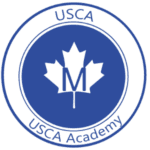Yes, individuals who have completed their 12th grade or equivalent education (often referred to as “12th pass”) can apply to study in Canada at the post-secondary level. Canadian post-secondary education typically includes colleges, universities, and vocational institutions. Here are the general steps to consider:
- Choose a Program: Research and select a program or course of study that aligns with your educational and career goals. This could be a diploma, certificate, undergraduate degree, or postgraduate degree program.
- Meet Admission Requirements: Check the admission requirements for your chosen program and institution. These requirements may include academic qualifications, language proficiency (usually in English or French), and any specific prerequisites for the program.
- English/French Language Proficiency: If your primary language is not English or French, you may need to demonstrate proficiency in one of these languages. Common language proficiency tests for English include IELTS, TOEFL, or the Canadian English Language Proficiency Index Program (CELPIP).
- Application Process:
- Apply to the Canadian institution of your choice. Each institution may have its own application process, so carefully follow their instructions.
- Pay any application fees required by the institution.
- Receive Letter of Acceptance: If your application is successful, you will receive a formal letter of acceptance from the institution. This letter is important for your study permit application.
- Study Permit Application:
- Apply for a study permit (student visa) from the Government of Canada. You can apply online or through a visa application center.
- You will need to provide your letter of acceptance, proof of financial support, and other required documents.
- Pay the study permit processing fee.
- Biometrics and Interview: Depending on your country of origin and specific circumstances, you may be required to provide biometrics (fingerprints and photo) and attend an interview at a Visa Application Center.
- Health Insurance: Ensure you have adequate health insurance coverage while studying in Canada. Some provinces provide health coverage to international students, while others require students to obtain private health insurance.
- Arrival and Orientation: Arrive in Canada before the start of your program. Many institutions offer orientation programs to help international students settle into their new environment.
It’s important to note that the specific requirements and processes can vary depending on the province, institution, and program of study. Additionally, immigration policies and requirements may change, so always refer to the official website of the Government of Canada and the institution you plan to attend for the most up-to-date information.
Having completed 12th grade or its equivalent is a common starting point for international students pursuing post-secondary education in Canada, but it’s essential to ensure you meet the specific requirements of the program and institution you’re interested in.

